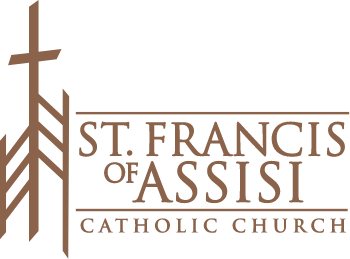Last Sunday our readings focused on prayer—specifically, persistence in prayer. At the heart of the Gospel is a simple yet profound request from the disciples: “Lord, teach us to pray.”
I’m reminded of a memory from when my younger sisters were much smaller. We had a beloved family dog who eventually passed away. After the burial, as we prepared to leave, my little sister asked, “Aren’t we going to pray?”
She folded her hands, closed her eyes, and began: “Bless us, O Lord, and these thy gifts which we are about to receive.” It was the only prayer she knew, yet it was beautiful. Prayer, like faith itself, grows with us.
The disciples already knew the prayers of their tradition—the psalms, canticles, and Jewish customs. Yet they saw something different in Jesus and John the Baptist. Their question wasn’t simply “How do we pray?” but rather, “How can we pray the way you do?”
There are many forms of prayer—meditation, praise, thanksgiving, intercession, petition—but Jesus doesn’t give his disciples a list of methods. Instead, he answers by revealing the heart of prayer: the One to whom we pray.
Consider the first reading about Sodom and Gomorrah. Up to this point, God had revealed himself gradually to Abraham. Through this encounter, God reveals another aspect of himself: he is a just judge.
We often shy away from this image, associating judgment with guilt or punishment. Yet in this passage, God explains:
“The outcry against Sodom and Gomorrah is so great, and their sin so grave, that I must go down and see whether their actions correspond to the cry that has reached me. I will go down.”
God is a judge who listens and cares. He acts against evil and will not allow it to continue without consequence. Without justice, there is no change, no hope for the innocent.
Abraham pleads: “Will you destroy the innocent with the guilty? What if there are fifty righteous? Forty? Thirty? Twenty? Ten?” Through this exchange, Abraham discovers how merciful God truly is. He hears the cry of the poor and acts with fairness, mercy, and justice.
These are the qualities of a loving father.
So what is the image of God that shapes our own prayer? When Jesus teaches His disciples, He doesn’t focus on technique. He directs them to the One they address:
“When you pray, say: Our Father.”
In Aramaic, the word is Abba—much like saying “Dad.” Prayer, at its heart, is approaching God with the intimacy of a child speaking to a loving parent. Yet this closeness is balanced with reverence:
“Hallowed be thy name. Thy kingdom come.”
In acknowledging God as Father, we also confess that he is God, and we are not. This calls us to pray with humility.
“Give us this day our daily bread.”
In all our needs—physical, spiritual, or in seeking forgiveness—we express humble trust: Father, you are God. I am not. But I believe you will provide what I need.
Still, many of us struggle when our prayers seem unanswered. Yet consider how we offer prayers of thanksgiving. When things go well, we rarely wonder
whether our gratitude is “acceptable” to God. But when we pray in need, we often expect tangible results. We want proof that God has acted.
This reveals the true question: Do we see God as a tool to obtain what we want, or do we trust him as the loving Father of our Lord Jesus Christ?
When we pray, we pray to the one Jesus prays to.
Our prayer, then, must reflect his own: a child turning to a father who knows and loves us completely.
So: Lord, teach us to pray like you—to our Father, who art in heaven.
Father James Schibi, Pastor

